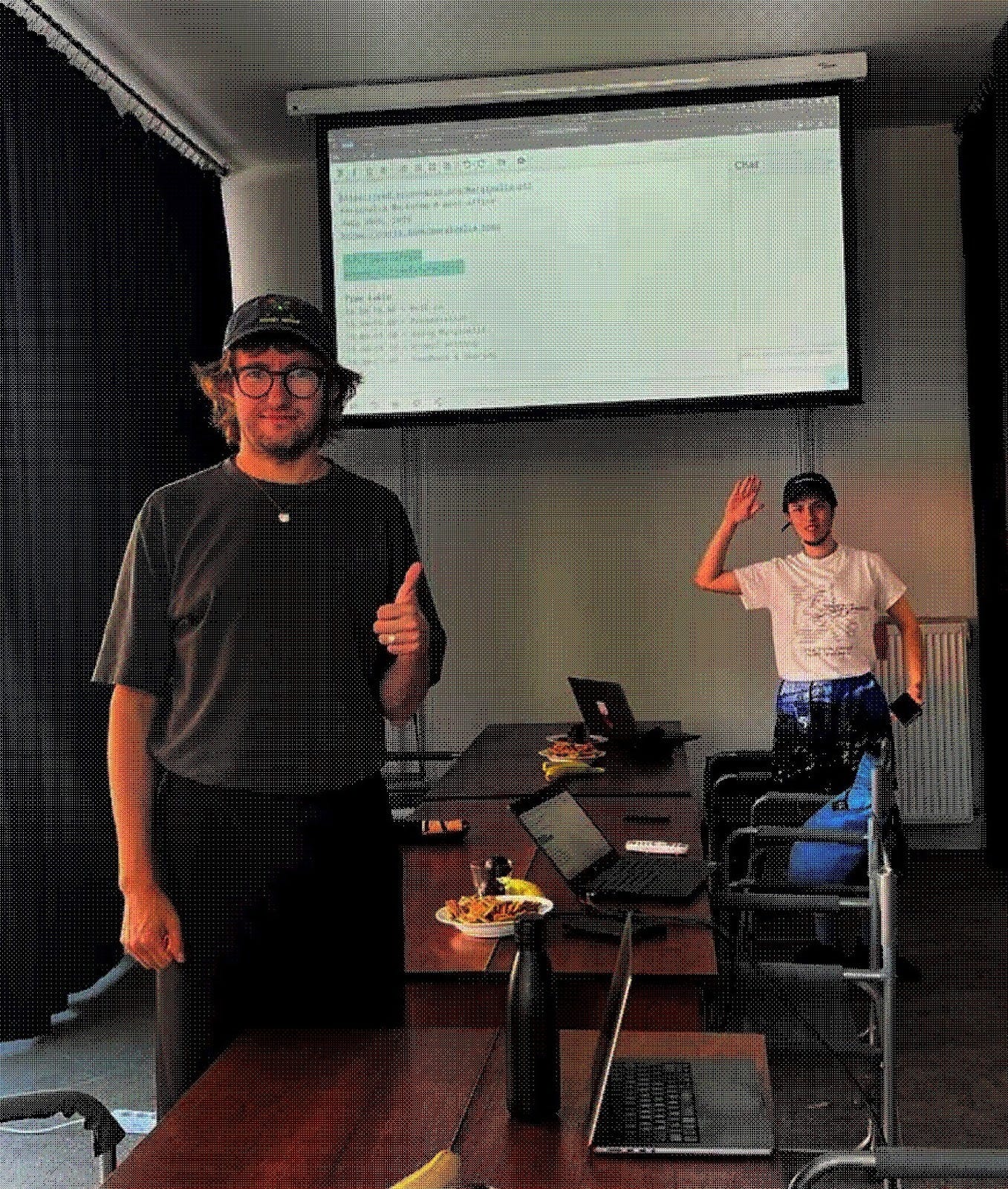Exit Memes Proposals
Arran Lyon and Senka Milutinović: Marginalia

Dear reader,
Thank you so much for all the kind messages following the last newsletter. Here is a quick Q&A without the questions:
Yes, I’ll be leaving Substack.
Yes, I’ll be continuing Naive Weekly.
Yes, it will take some time.
Yes, I’m accepting exit meme proposals.
In short, I want Naive Weekly to live on the web and allow for more experimentation with the newsletter itself. Substack feels like a continuation of social media with an increased focus on locking in readers and writers through accounts, apps and »network effects«. This is not what I want for myself, you, or the web.
I’m currently playing around with the new website design. I’ll find a way to share it with you when my thoughts have matured.
With care,
Kristoffer
Ps. wow, there are now 5,000 people receiving this email.
. ݁₊ ⊹ . ݁ ⟡ ݁ . ⊹ ₊ ݁.
Arran Lyon and Senka Milutinović: Marginalia
Senka Milutinović is a researcher, writer, and multimedia designer. Arran Lyon is a multidisciplinary coder. Both are a part of the ARK collective.
What is Marginalia?
Marginalia is an annotation and publishing platform that encourages writing in the margins. It takes annotations, footnotes, tangents, and asides, and makes them equally important to the main text. Writings in the margin help us understand texts better, but also find original traces of ideas, similar to how hyperlinks lead us to unexplored resources.
Why did you start it?
We struggled to find adequate tools for collaborative use. The ones that were offered to us were imposed by Big Tech companies and geared towards efficiency and productivity. We needed tools that are suitable for non-linear, messy, playful, entangled and not often recognized knowledge creation that comes with collectivity. This became clear to us during a research fellowship with ARK collective and led us down the rabbit hole of marginal writing, and we decided to make a tool that put the margins at the centre.
Who or what inspired you?
Most notably Marginality as a site of resistance written by bell hooks and the A Feminist Server Manifesto 0.01 from the Feminist Server Summit. Both impacted us to think about Marginalia as a tool that could implement feminist principles, both on a tech and social level. So, for instance, the platform was built to be sustainable and accessible, it’s lightweight, can be self-hosted and the design has accessibility features, legible typography, and customizable parameters.
Design-wise, we celebrate this entangled and collective train of thought that doesn’t always aim for clarity, since this kind of designed clarity often flattens and simplifies. Instead of triumphing the individual author who creates a clear linear narrative, a lot of knowledge with Marginalia is created in dialogue with others, instead of in a vacuum. We made it free and open-source so it can continue evolving with a community that has a use for it.
Visit https://margi-nalia.site/.
𓇢𓆸𓏲𓇬𑁍
Field notes
1.
Personal Business. During the Summer, I started romanticizing family-run businesses. These small shops where people care and know about what they are doing. It’s quite the contrast to the textbook models I was taught in business school. There, the goal is always scale and domination. Maybe it is time to unlearn some of these leftover lessons from modernism? Making a Personal Business, as Charles Brokoski writes, seems aligned with this line of thought.
2.
»I read an article yesterday, stating that on average, people spend 4 hours and 37 minutes on their phones per day.« — Herman Martinus in Smartphones and being present.
3.
Full Days and the Long Walk. The writer Craig Mod is back from one of his long walks through Japan. He reminds us to schedule Full Days—days without internet distraction.
4.
Call for Participation: Mapping the Internet (final call), Experimental Search Engine (N/A), Chinatown JS (N/A), Sybil Residency (Nov 10), SFPC Winter 2026 Application (Nov 17), Orbital Studies Magazine (Dec 10),
5.
Poetic Web Calendar: Esoteric Algorithms (Oct 16-Nov 8, Berlin), The Wrong Biennale (Nov 1-ongoing, online), The Most Evil Computer Ever (Nov 2, SF), README Software Art Festival (Nov 6, hybrid), Debox (Nov 9, online), Crash Course (Nov 10-20, Rotterdam), Are You For Real (Nov 12, online), Next Level (Nov 13-16, Dortmund), What is a file? (Nov 14, Rotterdam), Stupid Hackathon Sweden (Nov 15, Sweden), (De)Growing Infrastructures (Nov 27, AMS), Chinatown JS (Dec 2, NYC), and The Web You Want (Apr 17, Amsterdam).
𓂃 ོ☼𓂃
Wayside flowers
Last email was sent to 5019 inboxes. Thirteen people support me with a paid subscription. You can send questions, comments, products, sites, links, and more to kristoffer@naiveweekly.com. I read everything you send me :)



